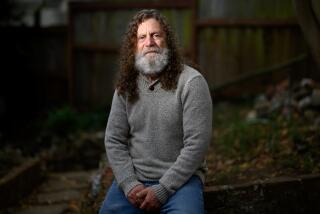The West May Overuse Punishment : Psychologist Skinner Prefers Positive Reinforcement
Psychologist B. F. Skinner says there are three major things wrong with life in Western society today.
For one, thereâs too much punishment.
For another, thereâs this habit of doing work not for enjoyment and satisfaction--the positive reinforcement, as psychologists put it--but rather for negative reasons, such as not being fired.
And third, people go too far in their quest to avoid anything that might be unpleasant. âWe not only resist the constraints imposed by tyrannical governments and religions,â Skinner says, â(but) we resist seat belts, hard hats and no-smoking signs. We escape not only from painful extremes of temperature and exhausting work but from the mildest discomforts and annoyances.â
As a result, âthere is very little left to escape from or act to prevent,â says the grandfather of behaviorism, whose thoughts on âWhatâs Wrong With the Western Worldâ will be included in a new volume of essays called âUpon Further Reflection,â scheduled for publication next year. What should be present in life as a ânegative reinforcementâ--teaching people how to behave, survive and exist--has been lost. Shielded from the natural pushes and tugs of nature, he says, humanity may cease to grow.
âNot Enjoying Livesâ
âMany of those who live in the Western democracies enjoy a reasonable degree of affluence, freedom and security,â Skinner says. âBut they have a problem of their own. In spite of their privileges, many of them are bored, listless or depressed. They are not enjoying their lives.â
In short, says this man who wrote about a Utopian world in the 1976 novel âWalden Twoâ and has spent much of his 81 years figuring out how to encourage improved behavior, many people today are simply unhappy. They do not like what they are doing, he says, because âthey are not doing what they like.â
This does not qualify by Skinnerâs own measure as âthe most serious problem in the world.â But it could, he says, âbe the ultimate one,â since the rest of the world tries to emulate the life style in Western nations.
âIs there not something more promising in the future of the species?â Skinner asks. He believes there is.
His answer draws upon the core of his philosophy: Focus on rewarding good behavior, not punishing bad behavior. If this pattern is followed often, and thoughtfully, he says, then bad behavior simply wonât exist anymore.
Formerly known as behavior modification and more recently as applied behavior, this idea has been used to train animals in laboratory experiments and teach children more effective ways of learning. In Skinnerâs view, education should be a steplike path designed to be stimulating all along the route.
âAnyone who has improved a situation so that things are done more easily, more effectively, has used these principles,â Skinner says. âCertainly anyone who has found an alternative to punishment has used them.â
A Closer-to-Nature Ideal
Skinnerâs ideal world would be closer to nature. Society would realize that âif you are hot in the summer, you ought to be hot in the summer,â he says, âand if you are reasonably cold in the winter, you are reasonably cold.
âHeating your house in the winter so that you have to strip your clothes and cooling your house in the summer so that you have to wear more clothes is all an absurdity.â
All of these cultural actions, Skinner says, are done for immediate comfort and gratification, with little or no thought to the future.
Whatâs needed is to give satisfaction back to people. Itâs the difference, he says, between a craftsman who makes a complete chair and a person on an assembly line who makes only the legs. The craftsmanâs work, Skinner says, is constantly reinforced by the process of seeing the chair take form and finally of producing the finished chair. But the assembly-line worker sees only chair leg after chair leg--never the completed product.
Skinner is not advocating elimination of important modern advances, such as the assembly line. But he would like to see industrial engineers and psychologists continue to team up to produce better work places and better ways of working that will offer modern employes the psychological lift that the craftsman once felt.
Ideas Used at Home
For Skinner, these ideas are not mere theories but practices that he has tried to implement in his own life. He has applied them at home, first with his daughter, Julie Vargas, now a professor of educational psychology at the University of West Virginia, and later with Deborah Skinner Buzan, his daughter who spent much of her first 2 1/2 years in the now-famous Air-Crib, also known as the baby box. This 4x2 1/2-foot plywood and glass box was a temperature- and humidity-controlled structure designed to provide a child with a âvery comfortable, stimulating environment.â
Although the box has been used to care for several hundred children (including Skinnerâs two granddaughters) during the last 41 years, its use is still controversial. Rumors, even among the scientific community, are that Buzan is psychotic, Skinner says. Or that she committed suicide. The latest, Skinner notes, is that sheâs suing him for putting her in the box.
Actually, she is now a successful artist and writer, married to a political scientist and living in in London. Buzan says she finds the tales amusing. âI donât object to any of the attention at all,â she said recently by telephone. âI think itâs quite fun.â
And, although she doesnât remember being in the box, she says many of her etchings have a boxlike theme that often prompts teasing from colleagues. If she had children, she says, she wouldnât hesitate to use the baby box--which she considers an updated form of crib-playpen.
âI also like his theories,â she says. âI apply them a lot.â






